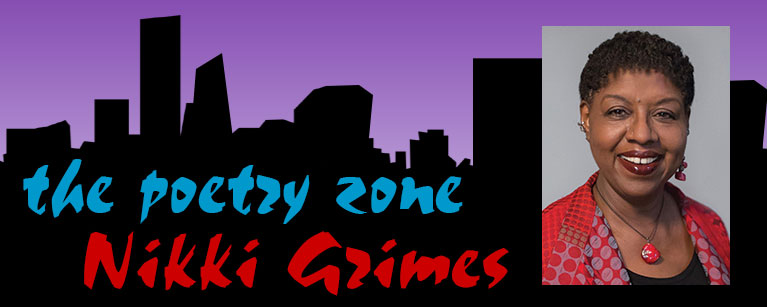I am tremendously psyched that this has proven to be a genre with legs, at least in the children’s book market where I ply my trade. When a publisher at the last ALA told me that librarians were actively seeking novels in this format, my little heart went pitter-patter. However, before a writer decides to jump on this particular bandwagon, may I suggest that non-poets need not apply.
Now, on the surface, that statement might seem obvious or an overstatement. However, I’ve come across a number of so-called novels in verse that are anything but. It seems that someone has floated the notion that anything that looks like a poem is, in fact, a poem. With that in mind, they create a collection of short pieces that may quite competently tell a story, but which are not, in fact, poems. Rather, they are what I call broken prose. That is to say, prose shaped on the page to resemble poetry. How can you tell the difference, you ask? That’s easy. You can read page after page after page without once encountering a metaphor, a simile, assonance, consonance, internal rhyme, meter, or any other poetic element. Here you will find no sestina, tanka, sonnet, haiku. There will, in fact, be nothing that constitutes an actual poem. I’m just saying.
Does this distinction matter? Well, if you are a poet it does. If you are an educator seeking to introduce students to an authentic novel in verse it does. If you are a reader excited about poetry, and interested in learning about the possibilities of using authentic poetry to tell a story, this distinction matters. So, you decide.
For myself, if I crack the spine of a book that purports to be written in poetry, I’m looking for poetry. Anything less is a let-down.



10 Responses
Nikki, Thank you for this fantastic post. As a writer and editor of poetry, I couldn’t agree with you more.
Hurrah–great way to start September, with a straight-shooting comment. And a bull’s-eye hit. (For the uninitiated, that’s a metaphor.)
Jane
Hooray for you, Nikki. For years I’ve termed a lot of
this type of writing ‘Prose-etry!’ Few books of this
so called genre have nothing to do with Poetry.
Yes. This. Exactly this.
Thanks, Nikki.
Perfectly said Nikki!
hi Nikki — don’t know if you remember meeting me at Hollins some years ago. Very nice blog post.
I can’t say that I’ve ever read a novel in verse. I’ve read some so-called novels in verse, but I’m with you; they’re broken up prose. I’ve become so annoyed with them that I’ve come to a couple of conclusions.
1. If you want to write poetry, write poetry. If you want to write a novel, write a novel.
2. Trying to combine the two seems a cheap way to write a very thin book w/o going to the trouble of developing character, plot, etc. Or as Nikki says, metaphor, simile, etc. Writing a novel is hard work. Writing good poetry is hard wor. Writing a quickie book that looks like poetry–ehh–not so much.
Hi Nikki,
I do not agree since I have seen novels written in verses beautifully, and they are poems and tell stories. There were several poets who wrote their books in Persian which tells hundreds of historical and mythical stories in verses. SHAKESPEARE was another poet who wrote his stories in verses.
Maryam
Nikki,
I am forwarding this blog to a friend of mine who has just written her first novel in verse. I think it will be a great encouragment to her.
Hi Nikki
Thanks for the enlightment. I just printed my first book, “Who’s the Best Rapper? Biggie, Jay‑Z or Nas,” a book where I use rap lyrics as a medium to increase literacy and teach counseling skills to those who don’t read often but listen to rap music. I was excited about this post because in the book I demonstrate why rap lyrics are poems, and I do this by providing examples of many of the concepts of peoptry that you mentioned. I can imagine how busy you may be, butI would be honored if I could send you a copy of my book to be reviewed. Thanks